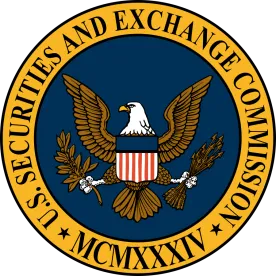In Liu v. Securities & Exchange Comm’n, No. 18-1501, 2020 WL 3405845 (U.S. June 22, 2020), the United States Supreme Court upheld the authority of the Securities and Exchange Commission (“SEC”) to seek disgorgement as an equitable remedy under 15 U.S.C. § 78u(d)(5), so long as it “does not exceed a wrongdoer’s net profits and is awarded for victims.” Although Liu preserved the SEC’s disgorgement powers as a general matter, it narrowed the criteria for appropriate equitable relief, effectively curtailing the SEC’s ability to pursue unduly broad disgorgement remedies.
The SEC alleged that defendants defrauded foreign nationals investing in the United States EB-5 Immigrant Investor Program by misappropriating investors’ funds earmarked for construction of a cancer treatment center. The EB-5 program allows non-citizens to pursue permanent residency by investing in growth projects so long as those projects provide jobs for U.S. citizens.
The United States District Court for the Central District of California, in addition to an injunction and fine, ordered disgorgement equal to the amount defendants raised from investors, inclusive of funds utilized for business expenses. Securities & Exch. Comm’n v. Liu, 262 F. Supp. 3d 957 (C.D. Cal. 2017). The United States Court of Appeals for the Ninth Circuit affirmed. Securities & Exch. Comm’n v. Liu, 754 F. App’x 505 (9th Cir. 2018). The Supreme Court granted certiorari to determine the extent of the SEC’s disgorgement powers, whether net or gross.
Defendants argued that the Court’s decision in Kokesh v. Securities & Exchange Comm’n, 137 S. Ct. 1635 (2017), that disgorgement is necessarily a penalty means that disgorgement imposed on them is not available at equity. Petitioners also argued that the disgorgement award was unlawful because it exceeded the bounds of traditional equity in three ways: (1) it failed to return funds to victims; (2) it imposed joint-and-several liability; and (3) it did not reflect deductions for legitimate business expenses.
In an 8-1 decision, the Court (Sotomayor, J.) held that the SEC may seek disgorgement. It also ruled that any disgorgement must be awarded for victims. Although the Court affirmed the SEC’s authority to seek disgorgement, it acknowledged that the concerns raised by defendants create “considerable tension with equity practices.” The Court therefore vacated the disgorgement order and remanded to the Ninth Circuit to issue an award that comports with the equitable principles outlined by the Court. Justice Thomas filed the lone dissent, asserting that disgorgement is not a traditional equitable remedy and is, therefore, unavailable to the SEC under Section 78u(d)(5).
The Court first addressed defendants’ argument that its decision in Kokesh, which held that disgorgement constituted a penalty for the purposes of imposing a five-year statute of limitations, precludes the SEC from seeking disgorgement as “equitable relief” under Section 78u(d)(5). The Court confirmed that Kokesh does not prohibit the SEC from seeking disgorgement in equity. However, the Court expressed concern that disgorgement could be imposed in a manner that exceeds traditional equitable principles, and a closer look at the award in this case was required.
The Court explained that to operate as an equitable remedy, disgorgement must do more than benefit the public at large by depriving a wrongdoer of ill-gotten gains since Section 78u(d)(5) restricts equitable relief to that which “may be appropriate or necessary for the benefit of investors.” Generally, the Court noted, this language requires the SEC to return a defendant’s gains to victims.
The SEC asserted that its long-standing practice of depositing disgorged funds with the Treasury may be appropriate where it is infeasible to distribute collected funds directly to investors. Although the parties did not identify a specific order in this case directing proceeds to the Treasury, the Court exhibited skepticism towards this practice and noted that lower courts may determine whether such an order would indeed be for the benefit of investors as required by Section 78u(d)(5) and be consistent with equitable principles.
With regard to joint-and-several disgorgement liability, the Court explained that whereas equitable principles favor holding defendants liable to account only for profits that have accrued to themselves, common law has permitted liability for partners engaged in concerted wrongdoing. The Court left it to the Ninth Circuit to determine on remand whether such conditions existed to permit joint-and-several liability here.
Finally, the Court held that disgorgement orders must take into account any legitimate business expenses. While it may be that the entire profit of a business results from wrongdoing rendering deductions inappropriate, courts must ascertain whether expenses are in fact legitimate or if they are simply additional wrongful gains under another name.
In remanding the case to the Ninth Circuit, the Court reiterated several times that should courts fail to apply these principles, a disgorgement award may “transform” into an impermissible penalty.
The Court’s decision in Liu upheld the SEC’s authority to seek disgorgement in equity, but established criteria to which such relief must conform in order to avoid transforming into an impermissible penalty. As courts apply Liu moving forward, we can expect to see increased scrutiny of relief fashioned as disgorgement to ensure that the relief does not exceed the permissible bounds of equity.



 />i
/>i
